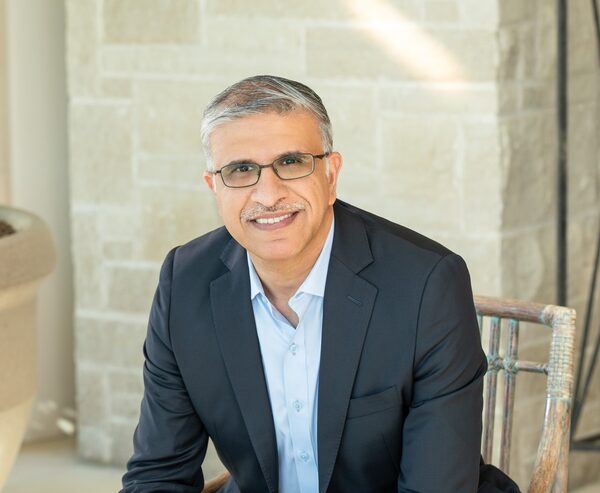
Magna CEO Seetarama Kotagiri.Supplied/Courtesy of Magna International
Magna International Inc. MG-T paid chief executive Seetarama Kotagiri US$27.97-million in 2022, driven by a “transformational” stock grant that will pay off big if the company can deliver outsized returns in its share price.
Magna made the special stock awards in a disappointing year in which the company’s profit dropped sharply and the share price tumbled.
Magna valued the stock award to Mr. Kotagiri at US$15-million, making up more than half his 2022 compensation. But if Magna hits all the targets in the plan, culminating in a 200-per-cent gain in stock price, Mr. Kotagiri’s award will be worth just under US$94-million.
Conversely, if Magna shares fail to hit the first hurdle – a 50-per-cent gain in price – Mr. Kotagiri will receive nothing. (Magna must achieve the stock price hurdles for 40 consecutive trading days, a requirement the company says adds rigour to the plan.)
In September, Magna gave these “transformational stock grants” to Mr. Kotagiri and 16 other executives. All told, the 1,738,018 shares could be worth just under US$300-million at the biggest hurdle price. But, Magna says, its market capitalization will have grown by about US$32.7-billion if that occurs – meaning ordinary shareholders would collect more than 99 per cent of the gain in value.
The recipients also must wait until 2027 to get the first half of their awards and 2028 and 2029 for the final installments, Magna says.
Magna discusses the plan at length in its recently filed proxy circular. It hopes to get a positive vote from shareholders in the “say on pay” vote May 11. It says five of its largest institutional shareholders gave feedback last year “that was very positive overall.”
“Magna’s core executive compensation system has generally demonstrated itself to be effective in incenting short- and long-term outcomes aligned with operational performance,” the company explains to shareholders. “However, the core system on its own may not drive the behavioural change needed to transform Magna from an industrial manufacturer (Magna v1.0) to a mobility technology leader (Magna v 2.0).”
The stock grants are “intended to transcend any inherent disincentives to bold action,” the company says. As Magna invests heavily in areas such as electrification and advanced driver assistance systems, it may “significantly reduce both short- and long-term compensation under the core executive compensation system.”
Mr. Kotagiri receives a US$325,000 annual salary, slim compared to most companies of Magna’s size. But Magna also has a bonus program that gives a slice of annual profit to its executives. In Mr. Kotagiri’s case, the share is 0.2525 per cent – and when Magna posted US$1.365-billion in pretax profit, by the board’s calculation, Mr. Kotagiri received a US$3.458-million bonus. (Annual share and stock option awards, other than the transformational grant, made up another US$9.2-million in his compensation.)
That annual bonus was less than Magna anticipated, however, as Mr. Kotagiri’s target bonus was US$5.48-million.
“Consistent with the experience of many other companies, Magna had to contend with macroeconomic, geopolitical and other disruptions which had a number of uncontrollable impacts on company performance in 2022,” Magna explained to shareholders. “Unfortunately, this was the third consecutive year of such disruptions and they were accompanied in 2022 by some controllable operational underperformance.”
Magna said those controllable issues included “higher warranty expenses, significant underperformance at a European manufacturing facility, and other items.”
Net income fell to US$592-million in 2022 from US$1.51-billion in 2021, according to S&P Global Market Intelligence. The adjusted profit measure the company points to dropped by 20 per cent. Total return for Magna shares, including dividends, was negative 26.8 per cent, and its stock performance placed 10th among a group of 14 peers.
“On an absolute and relative TSR [total shareholder return] basis, the shareholder experience during calendar 2022 was unquestionably negative,” Magna acknowledges. “While many of the challenges discussed above were not unique to Magna, the impacts were not felt equally across the peer group.”
Magna spokesperson Tracy Fuerst noted that with profit and other metrics below their targets and Mr. Kotagiri’s 2022 stock options already being “out-of-the-money” with the share-price decline, it estimates his “realized/realizable” pay for 2022 at $6.55-million.
This calculation, she said, “provides an indication on how all the elements of compensation granted in 2022 are actually performing at a point in time. In Magna’s case, this amount is significantly lower than the CEO’s target and actual compensation because actual performance was down across the various metrics incorporated into the executive compensation program.”